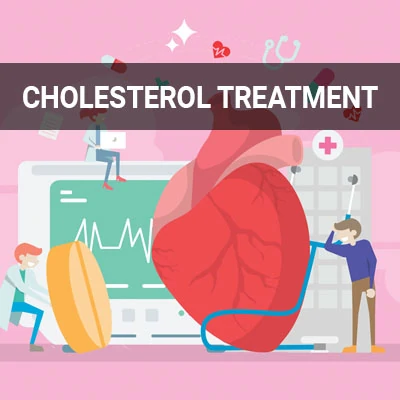Weight Loss Treatment Fort Lauderdale, FL
Weight loss programs have gained extreme popularity over the past few decades, but many of them are detrimental to our health and well-being. Choosing a weight loss program through a qualified physician or specialist provides more realistic and achievable outcomes while keeping health in mind. We can curate an individualized treatment plan that works best for your goals, lifestyle habits, and current health status.
Weight loss treatments are available at Proactive Medical Group in Fort Lauderdale and the surrounding area for patients looking to improve both their health and appearance. Our team works to help you attain the body you want in a healthy way. To learn more about a procedure or schedule an appointment, call (954) 938-2843 today.
What is Overweight and Obesity?
Most patients looking into weight loss programs fall under the overweight or obese categories. We look at the Body Mass Index (BMI) to determine where a patient fits in regards to their weight. BMI refers to the measure of a person's weight in relation to their height. Overweight individuals fall between 25 to 30 on the BMI scale while obese individuals have a BMI over 30.
According to the National Institute of Diabetes and Digestive and Kidney Diseases, "Obesity is a chronic disease that affects more than 4 in 10 adults in the United States, and nearly 1 in 10 Americans have severe obesity." Although obesity is a chronic condition, a healthy lifestyle and diet changes can tremendously impact weight loss. A healthy lifestyle and diet encompass regular physical exercise, a meal plan, and routine physical checkups and exams.
“Overweight individuals fall between 25 to 30 on the BMI scale while obese individuals have a BMI over 30.”
How Weight Affects Health
Excess weight, or chronic weight, has many detrimental effects on overall health. The Centers for Disease Control and Prevention (CDC) states that individuals who are obese are at an increased risk of acquiring various diseases and serious health conditions, such as:
- All causes of death (mortality)
- Body pain and difficulty with physical functioning
- Coronary heart disease
- Gallbladder disease
- High blood pressure (Hypertension)
- High LDL cholesterol, low HDL cholesterol, or high levels of triglycerides (Dyslipidemia)
- Low quality of life
- Many types of cancer
- Mental illness such as clinical depression, anxiety, and other mental disorders
- Osteoarthritis (a breakdown of cartilage and bone within a joint)
- Sleep apnea and breathing problems
- Type 2 diabetes
The body functions as a machine. Each body part and organ in our body systems work together, each one linked to the next one in line. When one part is not functioning as intended, other parts start to wear or break down. One aspect of the body, weight, is connected to all of the other parts of the body. A healthy weight sets the stage for bones, muscles, brain, heart, and others to do their jobs effectively and efficiently.
“Each body part and organ in our body systems work together, each one linked to the next one in line.”
Understanding Weight Loss Treatment
Weight loss programs involve the use of one or more treatments or medications that help improve cardiovascular health and reduce the risk of complications related to obesity. A medical professional who treats chronic weight and obesity problems can curate a personalized treatment plan. They take into account the patient's medical history, medications they are currently taking, and any allergies or sensitivities they may have.
Weight loss prescription medications work by making an individual feel less hungry, full sooner, or making it harder for the body to absorb fats from the foods a person consumes. Each medication works differently, but they each target a problem the patient has. FDA-approved weight loss medications include Bupropion-naltrexone (Contrave), Liraglutide (Saxenda), Orlistat (Xenical), and Phentermine-topiramate (Qsymia). The FDA recently approved a weight loss injection medication called Wegovy (semaglutide) for patients who are obese or overweight and have at least one chronic condition due to their weight. Alongside medication, patients' treatment plans may consist of a meal plan, foods and beverages list, exercise plan, and any other changes pertaining to their lifestyle and condition.
“Weight loss programs involve the use of one or more treatments and/or medications that help improve cardiovascular health and reduce the risk of complications related to obesity.”
Check out what others are saying about our primary care physician services on Yelp: Weight Loss Treatment in Fort Lauderdale, FL
Healthy vs Unhealthy Weight Loss
Trendy non-medical weight loss programs tend to have one goal in mind: losing weight. That could be the primary goal of a client as well. However, most diets and fads induce temporary weight loss while affecting other parts of the body. It is important to know and understand the difference between healthy and unhealthy weight loss.
Unhealthy weight loss programs may help patients lose weight faster, but the weight loss usually only lasts for a brief time. Healthy weight loss (about one to two pounds per week) has been shown to keep the weight off longer and keep individuals motivated to continue eating a healthy diet and exercising. The CDC explains, "Even a modest weight loss of five to 10 percent of your total body weight is likely to produce health benefits, such as improvements in blood pressure, blood cholesterol, and blood sugar." Treatment plans for long-term weight loss should consist of a combination of medication, physical activity, and a healthy diet.
“Unhealthy weight loss may help patients lose weight faster, but it usually only lasts for a brief time.”
Questions Answered on This Page
Q. What does overweight or obese mean?
Q. How does weight affect health?
Q. What is weight loss treatment?
Q. What is the difference between healthy and unhealthy weight loss?
Q. What types of weight loss treatments are available?
People Also Ask
Q. What BMI is considered obese?
Types of Treatments Available
After discussing the patient's goals, past, current, and future health status, health risks, and types of treatments, we will create a treatment plan together. This involves patients in their own treatment and allows them to take charge of their life and health. Although every treatment plan differs, typical treatment plans include lifestyle changes, exercise and physical activity, behavioral changes, medications, and procedures or surgeries.
Lifestyle changes may consist of cutting calories, eating foods with healthier sugars (fruits and vegetables), eating more proteins, restricting certain foods, and replacing snacks and meals. They will always involve exercise and physical activity in any way the patient likes. Behavior changes help many patients lose weight; this can include modifying behavior through counseling or support groups. Some treatment plans include medications, as stated before.
Lastly, in severe cases, we may require or recommend a procedure or surgery. Endoscopic procedures include sleeve gastroplasty and intragastric balloon. Both procedures reduce space in the stomach to prevent overeating. Weight loss surgeries include adjustable gastric banding, gastric bypass surgery, and gastric sleeve. Patients who undergo a procedure or surgery must still commit to lifelong changes in their eating and exercise habits to ensure treatment success.
“Although every treatment plan differs, typical treatment plans include lifestyle changes, exercise and physical activity, behavioral changes, medications, and procedures or surgeries.”
Frequently Asked Questions
Q. What is medical weight loss treatment?
A. Medical weight loss treatment refers to weight loss programs managed and overseen by a medical professional. They curate a custom treatment plan for each individual based on their current health status and medical history, including any conditions they have and medications they are taking. A medical weight loss treatment may consist of medications, lifestyle and behavioral modifications, procedures, or surgeries.
Q. What are the benefits of taking prescription weight loss medications?
A. Prescription medications are not for everyone. However, people who take prescription medications as part of a lifestyle program lose three to 12% more of their starting body weight than people in a lifestyle program who do not take medication. Weight loss medications also help improve health by lowering blood sugar, blood pressure, and triglyceride levels and reducing problems related to overweight and obesity, such as joint pain and sleep apnea.
Q. What risks do weight loss medications hold?
A. Risks and side effects vary by medication and how a person's body reacts. In most cases, however, side effects are minor and subside after the body becomes used to the new drug. Side effects of weight-loss medications include nausea, vomiting, headache, fatigue, constipation, dizziness, difficulty sleeping, dry mouth, diarrhea, increased blood pressure, and fast heartbeat, among others.
Q. How long will I need to take my weight loss medication?
A. The amount of time weight loss medications must be taken depends on whether the medication worked (over 12 weeks) and whether the patient had any serious side effects. In most cases, medications that help patients lose weight (at least five percent of your starting weight after 12 weeks) will be recommended indefinitely, along with lifestyle and diet changes. However, patients taking medications that do not help in losing weight or produce side effects may be advised to stop immediately. We alter treatment plans throughout a patient's weight loss journey and can make any recommendations as needed, which may include a referral to a bariatric surgeon for surgery.
Q. If obesity is a chronic condition, is it always genetic?
A. In many cases of obesity, genetics are the primary factor. Chronic energy imbalance results in excess weight in a person who consistently takes in more calories from food. However, not all chronic conditions, including obesity, are genetic. Some conditions arise during the span of our lifetime and stay with us for the rest of our lives. Chronic conditions must be continually monitored and managed and do not go away on their own.
Start Feeling Better – Visit Us Today
By visiting us as soon as possible, our team can help get you the professional treatment you need. Instead of waiting around and allowing the symptoms to get worse, we can provide you with treatment options.
Definition of Medical Terminology
Call Us Today
Weight loss consultations and treatments are available at our office. The Proactive Medical Group team looks forward to treating you, helping you lose weight healthily, and preventing health conditions from arising or progressing. Call our office at 954-938-2843 to learn more or schedule an appointment.
Helpful Related Links
- American Journal of Medicine. American Journal of Medicine. 2023
- American Medical Association (AMA). American Medical Association (AMA). 2023
- American Psychological Association (APA). American Psychological Association (APA). 2023
- National Eating Disorder Association. National Eating Disorder Association. 2023
- U.S. Department of Agriculture Healthy Living and Weighty. U.S. Department of Agriculture Healthy Living and Weight. 2023
About our business and website security
- Proactive Medical Group was established in 2022.
- We accept the following payment methods: American Express, Cash, Check, Discover, MasterCard, and Visa
- We serve patients from the following counties: Broward County
- We serve patients from the following cities: Fort Lauderdale, Oakland Park, Wilton Manors, Pompano Beach, and Sea Ranch Lakes
- Norton Safe Web. View Details
- Trend Micro Site Safety Center. View Details
Back to top of Weight Loss Treatment










